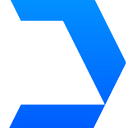How I built an app with no coding experience for £200 (Part 1)
I have experience in the app space.
I previously founded a golf app in 2014, but I have never written a line of code.
As someone who works at an innovation agency, I have been exposed to how apps are created and the thinking that goes into creating well-crafted products.
There has also been a recent emergence of ‘no-code’ solutions for apps and web platforms so I set myself a challenge:
Can I create an app from scratch using only my knowledge, skills, and £200 with no help from the engineers at the agency?
I hope this article helps others think about how they can create products or what is required to bring an app to market.
So what is the idea in a nutshell?
If you play golf you’ll know your thoughts and your mental approach has such a huge impact on your scores. However, golfers spend most of their time bashing balls on the range in the hope they’ll find a swing that stands up to pressure.
It won’t.
With the recent rise of mindfulness, meditation, and more and more top sportsmen talking about how they spend as much time training their minds as well as their physical skills, I wanted to provide this approach to amateur golfers all over the world.
Working with Karl Morris who has worked with over six Major champions such as Darren Clarke, Graeme McDowell, and Louis Oosthuizen, we, together are going to create an audio app designed to give golfers the knowledge and practical exercises to work on their mental games the same ways as the pro’s do.
That’s the idea. Now here is our journey as we go…
How I started
The below article is one I am very passionate about and whether it is my own idea or for an FTSE 100 client, we stress the importance of testing and iterating constantly to find product-market fit.
Why, because sure, designing and building a product based on your idea is fun, it’s exciting, but the below sums up perfectly why it’s not the most important factor:
“Poor distribution — not product — is the number one cause of failure.”
— Peter Thiel, PayPal co-founder and investor
If you don’t find out early what your customers want and that there is actually a need for it, then the best product in the world isn’t going to succeed.
Step 1: Mapping out the venture
Of course, working at an innovation agency, I have access to the tools and frameworks we take our clients through so I started where we start with them, The Venture Canvas.
This is where we map out at a high level the entire business split into three sections.
- The Problem / Solution fit
- Product-Market fit
- Business Model fit
The goal of the venture framework is to get everything out of your head and onto a map. From here you can see where you might be particularly strong or more importantly where you might have risks that should be discussed now rather than when they arrive further down the line.
Step 2: Assumption mapping
In my opinion, this is the most crucial exercise to any idea. As they say “Assumptions are the mother of all f**k ups.”
It still amazes me (and I have been guilty of this) how many companies have ideas of what their customers want with little to no evidence to support them here.
Assumption mapping is an exercise that allows you to spot potential blind spots that may end up destroying your business before it’s even begun.
It is very simple to use. You take elements that make up your idea and map them out based on how important they are to the success of your idea and what evidence you have to support your confidence in this.
For example, for my idea, it is a pretty important assumption that golfers will pay for an app to improve their mental game. However, I don’t actually have any data to support golfers' will. Therefore you can see this is mapped as ‘very important’ with ‘low confidence’ as if this turns out to be false, there is no business, or I will need to rethink my entire revenue model.
Now we have our Venture canvas and our key assumptions, part two is about how we went about validating those key assumptions [coming soon].
You can get access to the templates we take our clients through for free here
Danger Farms specialise in testing and delivering digital business ideas, to either reduce risk or improve success. If you want to have a chat then please get in touch.
